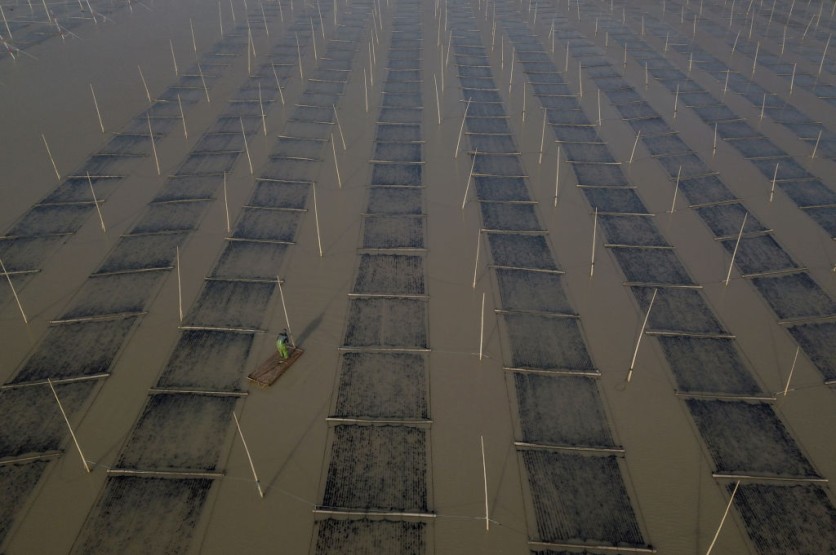Increasing the production of marine algae on land-based farms could address future societal nutritional needs and improve environmental sustainability, according to a recent study published in the journal Oceanography.
The advancement could go beyond the 56 percent increase in food production required to feed the 10 billion people who are expected to inhabit the earth by 2050.

Land-based Aquaculture Systems
Researchers at Cornell University believe that nutrient- and protein-rich microalgae may hold the secret to supplying the world's future protein needs. These would be raised in aquaculture systems that are land-based and fed by seawater.
"We have an opportunity to grow food that is highly nutritious, fast-growing, and we can do it in environments where we're not competing for other uses," Charles Greene, professor emeritus of earth and atmospheric sciences and the paper's senior author, said in a press release statement.
"And because we're growing it in relatively enclosed and controlled facilities, we don't have the same kind of environmental impacts."
According to the study, several factors will limit the amount of food that can be grown in the next decades, including climate change, a lack of arable land, a scarcity of freshwater, and environmental degradation.
To address this issue, Greene and colleagues suggest growing algae in onshore aquaculture facilities.
The new study developed GIS-based models that use geography, annual sunlight, and other environmental and logistical data to predict yields. These models were developed by Celina Scott-Buechler, a former doctoral student at Cornell.
The model's results show that the coasts of the Global South and desert environments are the best locations for onshore algae growing operations.
Greene claimed that algae could end up becoming the Global South's breadbasket and that people can produce more protein in their land than the world will need.
Algae Nutrients
The researchers also noted that algae contain nutrients absent in vegetarian diets, such as omega-3 fatty acids frequently found in fish and seafood, as well as critical amino acids and minerals found in meat.
Algae can be generated in a way that uses nutrients more effectively than agriculture does, growing ten times quicker than conventional crops, as per the study.
Aquaculture ponds also require carbon dioxide to develop algae, but CO2 sourcing is currently expensive and energy inefficient, which presents a difficulty for this undertaking.
However, engineers are experimenting with concentrated solar technologies, which use mirrors to concentrate sunlight to heat a working fluid. These technologies can then be used in direct air capture technologies, removing carbon dioxide from the air.
Although algae farming appears to offer a practical solution to many food-related and environmental issues, its success depends on public acceptance for usage in diets and other applications, as per Cornell Chronicle.
Related Article : Supercomputer Simulation Shows Possible Moon Origin; Earth's Natural Satellite Formed Faster?
This article is owned by Tech Times
Written by Joaquin Victor Tacla




